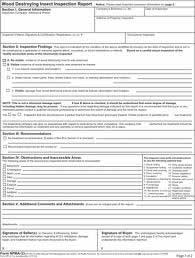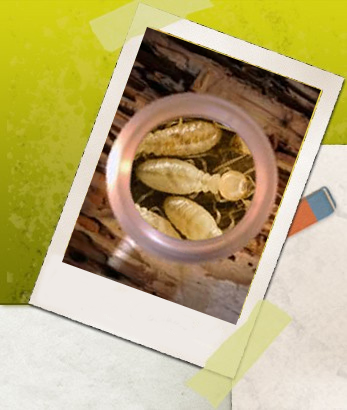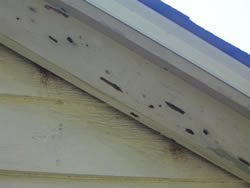Termite Inspectors for CT Real Estate Transactions & More
 VA, FHA, HUD and most banks require a termite report by a licensed termite inspector because termites and wood destroying organisms can impact the structural integrity of a CT home or property, reduce the property value of the residence and cost home and property owners significant amounts of money in repairs.
VA, FHA, HUD and most banks require a termite report by a licensed termite inspector because termites and wood destroying organisms can impact the structural integrity of a CT home or property, reduce the property value of the residence and cost home and property owners significant amounts of money in repairs.
Real Estate Sales Contracts, Lenders, Appraisers, Buyers and Home Inspectors often require, request or recommend a WDI Wood Destroying Insect Inspection Report. This report is also referred to as a Termite, Pest, WDI or Wood-Boring Insect Inspection Report. The mostly widely accepted format for this report is the NPMA-33 WDI report pictured on this page.
"Do I really need a termite inspector?" It's a question home buyers often ask. Although termites are more common in older homes, termites can be a problem in brand new homes throughout Connecticut as well.
When builders clear trees from a site to build new homes, the termites can migrate to the wood stored on the site. A concrete slab or brick construction is no guarantee that termites will not eventually invade a home because termites can work their way up through the ground into minuscule cracks in the concrete.
Reports are issued on the industry standard NPMA-33 form at the time of inspection or in electronic PDF format via e-mail. A pest inspection for a real estate transaction is generally a limited visual inspection of the readily accessible areas of the property and does not include any dismantling, removing or invasive procedures.
Call us today to set up an appointment:

 Termite Inspector CT: Carpetner Bee Damage. Carpenter bees usually construct nests in exterior wood such as siding, fascia boards, trim, and log homes. A round hole is chewed in the wood surface then a tunnel is bored, usually at 90 degrees to the entrance.
Termite Inspector CT: Carpetner Bee Damage. Carpenter bees usually construct nests in exterior wood such as siding, fascia boards, trim, and log homes. A round hole is chewed in the wood surface then a tunnel is bored, usually at 90 degrees to the entrance. Who Pays for CT Termite Inspections in FHA Loans?
Who Pays for CT Termite Inspections in FHA Loans? Termite Inspector CT – When does Termite Season Start and End? Termite season in Connecticut does not have a set beginning and end, as termites are active year round. The season when termites are most visible is typically March to November.
Termite Inspector CT – When does Termite Season Start and End? Termite season in Connecticut does not have a set beginning and end, as termites are active year round. The season when termites are most visible is typically March to November.